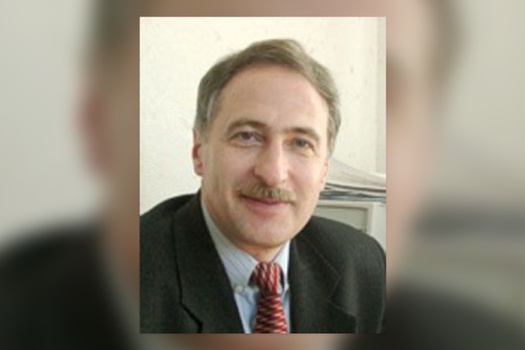
Another treason case Physics professor arrested in Moscow for allegedly passing secrets to a NATO country
Мы рассказываем честно не только про войну. Скачайте приложение.
On Tuesday, April 13, a Moscow court remanded theoretical physicist Valery Golubkin in custody on suspicion of treason. Allegedly, he passed information to a NATO country. Golubkin’s arrest comes in connection with a treason case against another scientist — physicist Anatoly Gubanov, who was arrested in December 2020. Though the details of the case remain classified, both professors have denied any guilt.
A Moscow court arrested theoretical physicist Valery Golubkin on suspicion of treason on Tuesday, April 13. According to state investigators, he passed classified information to a NATO member state, an informed source told Interfax. While Golubkin’s case isn’t marked as classified, the details are not yet officially known. His lawyer, Alexander Timoshenko, said that Golubkin “categorically” maintains his innocence. Timoshenko also noted that his client is nearly 70 years old and has health problems; several years ago he was sick with cancer.
Golubkin works at Moscow’s Institute of Physics and Technology (MIPT) and the Central Aerohydrodynamic Institute (TsAGI). According to the MIPT website, he holds a doctoral degree in engineering and is a professor in the Department of Theoretical and Applied Aero-and-hydromechanics, who lectures students in a course on “high-speed aerodynamics.” However, the university said that Golyubkin only teaches there part-time, isn’t involved in research work, and doesn’t have access to state secrets. MIPT also added that the physicist’s main place of work is TsAGI.
Golubkin was arrested in connection with a treason case against another academic — physicist Anatoly Gubanov, a source told Interfax (though a TASS source claimed that the cases aren’t connected). At the time of his arrest in December 2020, Gubanov also worked at TsAGI; MIPT’s website lists him as an employee in the Department of Flight Physics, and the lecturer for a course on the “practical aerodynamics of high-speed aircrafts.” Golubkin’s list of scientific publications includes a paper co-authored with Gubanov, which was published in 1996.
Gubanov stands accused of disclosing classified information related to the development of High-Speed Experimental Fly Vehicles (HEXAFLY-INT), said an Interfax source. When first interrogated by the FSB, the academic pleaded partially guilty, but later retracted his testimony, his lawyer Olga Denize told Kommersant. In conversation with Meduza, Gubanov’s daughter, Maria Gubanova, said that she knows nothing about the specifics of the claims against her father, but believes he is innocent.
According to data from Team 29, Russia has convicted 378 people of espionage, state treason, and disclosing state secrets in the past two years. Among the convicted are military personnel, former intelligence officers, academics, and journalists. In Russia, treason cases are classified and the court hearings take place behind closed doors — only the verdicts are announced officially. After the annexation of Crimea in 2014, the number of treason sentences handed down by Russian courts increased.
Story by Olga Korelina
Translation by Eilish Hart
(1) HEXAFLY-INT
The HEXAFLY-INT project was launched in 2014. In addition to Russia, it involved the Netherlands, Germany, France, Italy, Belgium, the UK, and Australia. The project’s EU coordinator was the European Space Research and Technology Center (ESTEC), while the Russian coordinator was the Central Aerohydrodynamic Institute (TsAGI). TsAGI was entrusted with the task of making a model for a test flight.
(2) Team 29
An association of lawyers and journalists led by lawyer Ivan Pavlov, a longtime defender of people accused of treason. According to members, their goal is to fight for justice in cases related to freedom of information (article 29 of the Constitution) and state security (chapter 29 of the Criminal Code)